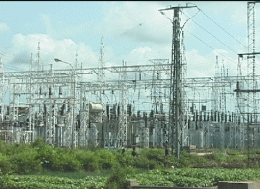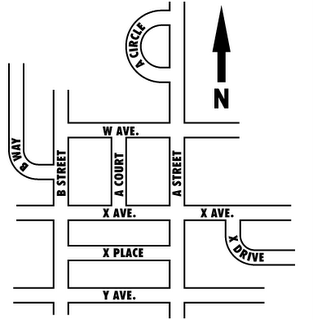The Economist Intelligence Unit has ranked Ghana 95th in the list of the most democratic states, placing it squarely in what the publication called the “hybrid regime” category. Ghana was placed in the same category with Liberia (98), Uganda (100) Russia (102), Gambia (108) Haiti (109) and Iraq (112).
Countries were divided into four groups: “full democracies,” which received average scores of 8.00-10.00 in some five indicators; “flawed democracies,” which received 6.00 to 7.90; “hybrid regimes,” which received 4.00 to 5.90; and “authoritarian regimes,” which received scores below 4.00.
Ghana’s overall score was 5.35 out of 10.00, and it placed 13 slots away from being a “flawed democracy.” Broken down by category, it scored relatively well in terms of its electoral process and pluralism (7.42). But the average was brought down by its mediocre performance in Civil liberties (5.88) and the poor performance in the functioning of its government (4.64), political culture (4.38) and political participation (4.44) sectors.
Scandinavian countries Sweden and Iceland took numbers one and two respectively, followed by the Netherlands, Norway, Denmark, and Finland.
The U.S. at 17th, and U.K., 23rd, ranked in the bottom half of the full democracies, which the article attributes to the erosion of the civil liberties as a function of the War on Terror. Italy, a member of the Group of Seven industrialized nations, ranks as a ``flawed'' democracy
No African states among the top 28 nations was characterized as “full democracies”. South Africa, Botwana, Cape Verde, Namibia, Lesotho and Mali were among the “flawed democracies”
All of Ghana’s neighbors fell within the “authoritarian regimes” group: Burkina Faso was ranked 119th, Ivory Coast 127 and Togo edged in at the bottom of the category in the 164th spot. Nigeria also fell in the same category placed 124th
The article published in The Economist’s "World in 2007" surveyed 167 nations and ranked them according to its own democracy index, a measure that incorporates “electoral process and pluralism; civil liberties; the functioning of government; political participation; and political culture.”
The Economist’s index was an attempt to thicken the definition of “democracy” set forth by the world’s preeminent democracy-ranking organization, U.S.-based Freedom House. That organization bases its rankings mostly on institutional requirements for electoral democracy: the components of free and fair competitive elections. The Economist’s democracy index includes a variety of other factors that the publication claims provides a more complete definition.
According to the report, 13 percent of the world’s population lives in “full democracies,” 32.3 percent live in “flawed democracies,” 10.5 percent live in “hybrid regimes,” and 38.2 percent lives in “authoritarian regimes.”
The following is a table of the six most democratic nations according to the Economist's ranking, and selected other nations, along with their score (from 1 to 10) Rank Country Score 1. Sweden 9.88
Countries were divided into four groups: “full democracies,” which received average scores of 8.00-10.00 in some five indicators; “flawed democracies,” which received 6.00 to 7.90; “hybrid regimes,” which received 4.00 to 5.90; and “authoritarian regimes,” which received scores below 4.00.
Ghana’s overall score was 5.35 out of 10.00, and it placed 13 slots away from being a “flawed democracy.” Broken down by category, it scored relatively well in terms of its electoral process and pluralism (7.42). But the average was brought down by its mediocre performance in Civil liberties (5.88) and the poor performance in the functioning of its government (4.64), political culture (4.38) and political participation (4.44) sectors.
Scandinavian countries Sweden and Iceland took numbers one and two respectively, followed by the Netherlands, Norway, Denmark, and Finland.
The U.S. at 17th, and U.K., 23rd, ranked in the bottom half of the full democracies, which the article attributes to the erosion of the civil liberties as a function of the War on Terror. Italy, a member of the Group of Seven industrialized nations, ranks as a ``flawed'' democracy
No African states among the top 28 nations was characterized as “full democracies”. South Africa, Botwana, Cape Verde, Namibia, Lesotho and Mali were among the “flawed democracies”
All of Ghana’s neighbors fell within the “authoritarian regimes” group: Burkina Faso was ranked 119th, Ivory Coast 127 and Togo edged in at the bottom of the category in the 164th spot. Nigeria also fell in the same category placed 124th
The article published in The Economist’s "World in 2007" surveyed 167 nations and ranked them according to its own democracy index, a measure that incorporates “electoral process and pluralism; civil liberties; the functioning of government; political participation; and political culture.”
The Economist’s index was an attempt to thicken the definition of “democracy” set forth by the world’s preeminent democracy-ranking organization, U.S.-based Freedom House. That organization bases its rankings mostly on institutional requirements for electoral democracy: the components of free and fair competitive elections. The Economist’s democracy index includes a variety of other factors that the publication claims provides a more complete definition.
According to the report, 13 percent of the world’s population lives in “full democracies,” 32.3 percent live in “flawed democracies,” 10.5 percent live in “hybrid regimes,” and 38.2 percent lives in “authoritarian regimes.”
The following is a table of the six most democratic nations according to the Economist's ranking, and selected other nations, along with their score (from 1 to 10) Rank Country Score 1. Sweden 9.88
2. Iceland 9.71
3. Netherlands 9.66
4. Norway 9.55
5. Denmark 9.52
6. Finland 9.25 1
7. U.S. 8.22 23. U.K. 8.08 2
9. South Africa 7.91
34. Italy 7.73
80. Mali 5.99
95. Ghana
102. Russia 5.02
112. Iraq 4.01
124 Nigeria 3.52
138. China 2.97
167. North Korea 1.03










